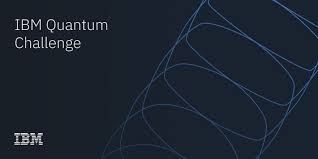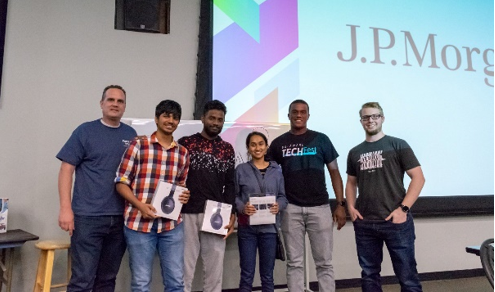UF-ECE PhD candidate Keerthiraj Nagaraj was awarded an ‘Advanced Achievement’ digital badge for successful completion of all the exercises in the third “IBM Quantum Challenge”, a global competitive coding contest involving 2000 students, researchers, and industry professionals from all over the world. Keerthiraj is the PhD student of Nelms faculty member Janise McNair.
As recently pointed out in Forbes Magazine, “quantum computing has the ability to create an almost un-hackable network of devices and data. The need to securely encrypt and protect IoT connected devices and power them with exponential speed and analytical capabilities is an imperative for both government and the private sector.”
The IBM Quantum challenge required participants to design and run quantum circuits using Qiskit python library in the IBM Quantum Experience platform and to run simulations on real quantum computers at IBM. During the three weeks of the November 2020 competition, Keerthiraj’s quantum circuits outperformed 94% of all the 2000 global participants. The awarded achievement badge commends Keerthiraj for his adept skills in implementing near-future quantum data structures and in the design of a quantum game solver using Grover’s algorithm, quantum circuits, and complex data structures techniques in Quantum Computing.

Keerthiraj has performed very well at recent competitions. Last Fall, Keerthiraj and his teammates Srivalli Boddupalli (PhD student at RISING lab, ECE) and Naga Venkata Sai Varanasi (UF ECE alumni) won first place for their project titled ‘BRIDGE’ in the ‘Best Hack for Social Good’ track sponsored by J.P. Morgan at HopHacks. This hackathon was hosted by Johns Hopkins University in September 2019.
The Best Hack for Social Good track focused on ideas that had positive social impact and were judged based on impact, innovation, completeness of solution, sustainability, and design of the idea. Keerthiraj and his team developed a graph database driven social network prototype called ‘BRIDGE’ that aimed at connecting various entities in non-profit space such as volunteers, non-profit organizations, and corporate sponsors. The BRIDGE framework was built using Neo4j (a graph database management framework) and Cypher query language with common social networking features such as custom recommendation engine, search engine, user connectivity, and event planning.
Congratulations Keerthiraj!
